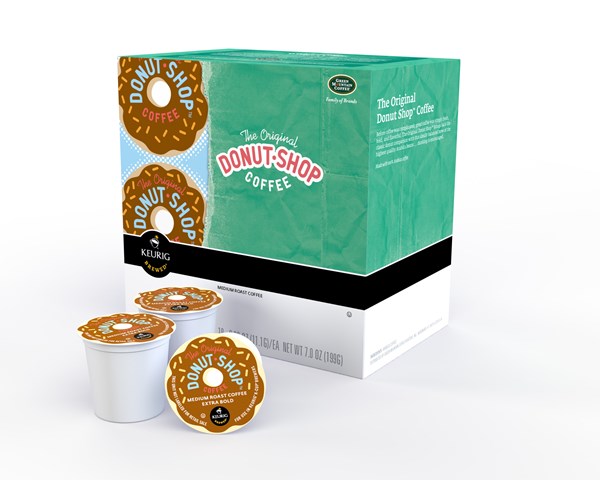TerraCycle Wants To Fix The K-Cups Recycling Problem
The company has developed a Zero Waste Box that can recycle any pre-packaged beverage capsules.

When single-serve coffee hit the market, a majority of coffee lovers embraced it right away. Finally, we could all enjoy a cup of coffee without any work. And it is very popular: Keurig Green Mountain says it sold 9.8 billion K-Cup portion packs in 2014. But, like any new trend, it now suffers from a backlash due to recycling.
The issue is that the coffee capsules cannot be recycled as a whole unit due to the structure of the cup. For instance, the popular K-Cups consist of #7 plastic, paper and an aluminum foil lid. In order for K-Cups to be recycled, the material must be separated from each other. But how many consumers do you think will take the initiative on that? Probably next to zero.
This is where recycler TerraCycle (Trenton, NJ) comes in. The company has developed a Zero Waste Box that can recycle any pre-packaged beverage capsules used in capsule-specific machines to make hot beverages. The Zero Waste Boxes come in three different sizes and can cost up to $210. Customers receive the box and then fill it with the appropriate waste streams. Once full, they can bring their box to any UPS location to ship the items back to TerraCycle using the pre-paid UPS shipping label, which is already on the box. When TerraCycle receives the box, the company safely recycles all of the collected materials.
The company launched the program about 18 months ago and has already collected 100 million capsules globally. Yes, a 100 million.
“People might doubt the recyclability of coffee capsules, but the fact of the matter is we have already collected 100 million—so it’s working,” Albe Zakes, global vice president of communications for TerraCycle, told Plastics Technology.
The collected waste is mechanically and/or manually separated into metals, organics and plastics. The plastics undergo extrusion and pelletization to be molded into new recycled plastic products such as plastic lumber and shipping pallets.
“Our goal is to eliminate the idea of waste,” Zakes said. “We understand zero waste is more of a goal to obtain, but programs like this can help take steps in that direction.”
Keurig has pledged to make a fully recyclable K-Cup by 2020 and Zakes says that the company’s hope is to bridge that gap between now and then.
Related Content
-
Calculating an Injection Molding Machine’s Carbon Footprint
Arburg has utilized the ISO TS 1467:2018 standard, which determines the greenhouse gas emissions of a product, to help its customers calculate the product carbon footprint (PCF) of its injection molding machines.
-
Avoid Four Common Traps In Granulation
Today, more than ever, granulation is an important step in the total production process. Our expert explains a few of the many common traps to avoid when thinking about granulators
-
A Recycling Plant, Renewed
Reinvention is essential at Capital Polymers, a toll recycler that has completely transformed its operation in a short period of time.
















